Monofilament Recovery and Recycling Program
Monofilament line is another name for single-strand, high-density nylon fishing line that is used on fishing reels. Used line can be harmful to boat motors and marine wildlife. Birds and animals cannot see discarded monofilament fishing line, so it is easy for them to become tangled in it and starve, drown or lose a limb.
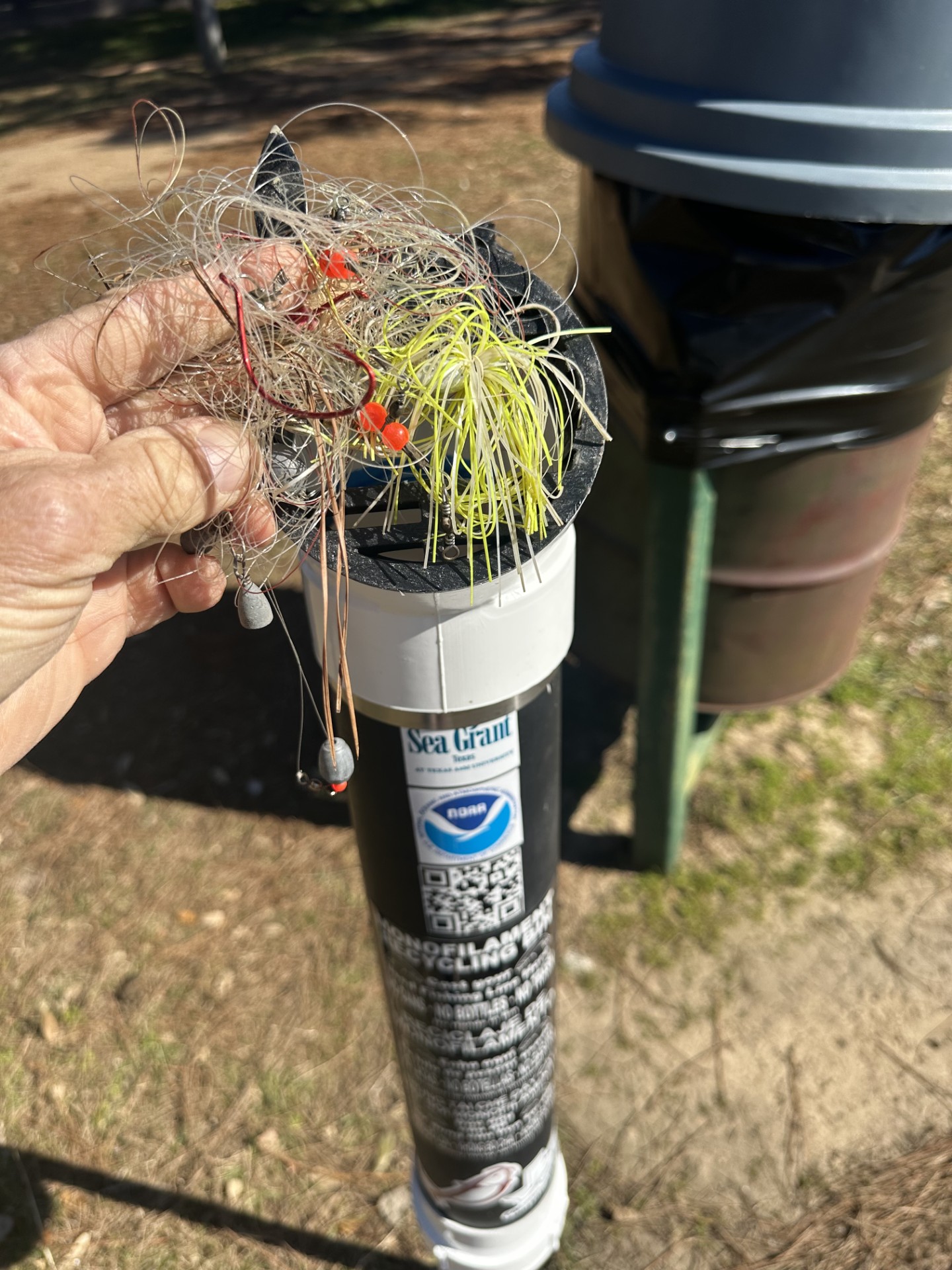
Overview
The Texas Monofilament Recovery and Recycling Program (MRRP) is coordinated by the Texas Sea Grant College Program. It is a statewide, volunteer-led effort to reduce monofilament in the environment by:
- Educating the public about the problems caused by monofilament line left in the environment, and
- Encouraging recycling through a network of line recycling bins and drop-off locations.
For more information about MRRP, contact John O’Connell at 979-864-1558.

MRRP Clean-Up Statistics
Goals and Objectives
Long-term Goals
- Heighten awareness about the negative impacts that fishing line debris has on human welfare, marine life, and water quality.
- Decrease the amount of fishing line entering and remaining in the natural environment.
- Increase the amount of fishing line being recycled.
Strategies to Reach These Goals
- Market and advertise using educational media that are appropriately designed to reach targeted audiences.
- Facilitate active participation in project activities by providing opportunities for targeted audiences to recycle fishing line, to volunteer to check or adopt bins, and to participate in debris cleanup events.
- Involve key community members in program implementation that will sustain the program after establishment and encourage buy-in from the community.
Objectives
- Provide all the technical support needed for any interested organization to initiate MRRP.
- Increase the number of tackle shops that are hosting Berkley line recycling receptacles.
- Increase the number of outdoor recycling bins throughout the state.
- Distribute educational materials that include brochures and posters to targeted audiences.
Ways to Help
There are many things Texans can do to help keep monofilament line out of the environment.
Recover Your Line
Whenever possible, retrieve and properly dispose of any monofilament line that you encounter. Take the time to remove monofilament from vegetation if it becomes tangled there.
Be Line Conscious
Consider the age of your line and its strength, and keep track of and store loose pieces of fishing line. Even tag ends cut from leaders can be stored easily for proper disposal. If you must throw away fishing line, cut it into pieces less than six inches long.
Properly Stow Your Rods
Store rods in a location where monofilament line won’t be caught by the wind and allowed to free spool, littering miles of Texas highways with line.
Make it a Rule
If you fish from a boat, make it an onboard rule not to throw any kind of plastic overboard, especially monofilament fishing line. To store the line safely until you can turn it in for recycling, cut an “X” into the lid of a tennis ball canister or similar container to make it easy to poke the pieces of line through.
Recycle
Recycle monofilament line in an indoor recycling bin at a local tackle shop or in an outdoor PVC recycling bin posted at boat ramps and piers. If the tackle shop you visit does not have a recycling bin, encourage them to participate in the program.
Volunteer
Volunteer to sponsor a monofilament recycling bin and empty it of line when full or as needed. Participate in local beach and river cleanup events, or volunteer for agencies that are actively sponsoring cleanups.
Gallery
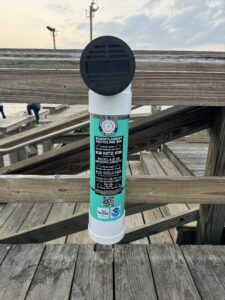
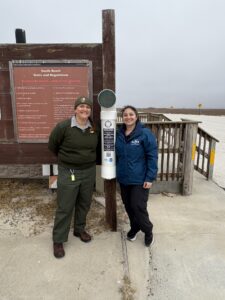
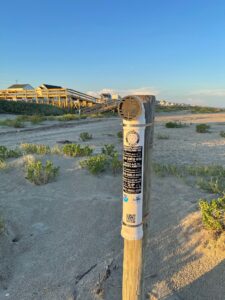
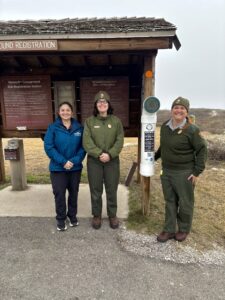
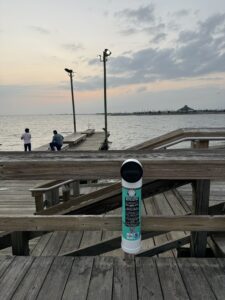
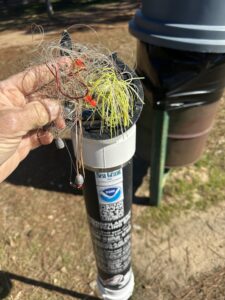
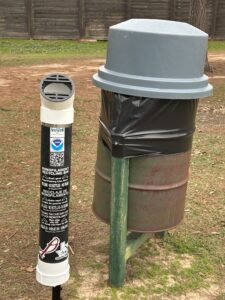
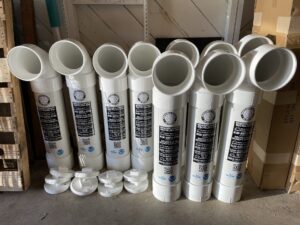
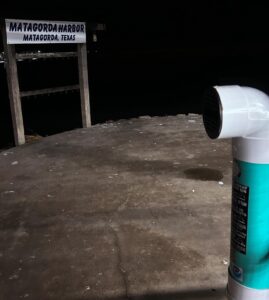
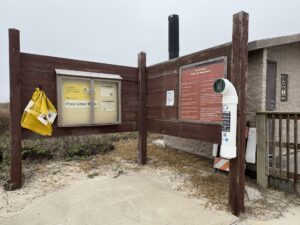
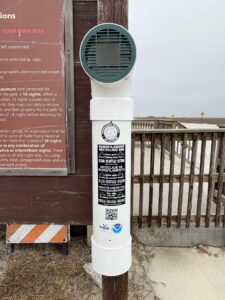
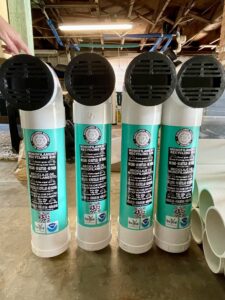
Texas Monofilament Recycling Bin Locations
Products and Resources
Materials and resources to support this project.
Frequently Asked Questions
Most fishing line that you can buy today is made of monofilament — a single-strand, strong, flexible plastic that is clear or tinted blue, pink or green.
Most monofilament is nonbiodegradable — it lasts about 600 years. Because it is thin and often clear, it is difficult for birds and other animals to see and they can easily brush up against it and become entangled. Once entangled, they may become injured, drown, or starve to death. Many animals also ingest fishing line. One recovered sea turtle was found to have consumed 560 feet of heavy-duty fishing line.
Much of the fishing line that ends up in the water gets there when someone’s hook gets snagged on something underwater and the line breaks when pulled. Sometimes the line will rub against a sharp shell, like an oyster shell, and will break. Large fish can sometimes pull hard enough to break lines. Sometimes fishing lines get caught in trees and break. Even fishing line that is thrown in the garbage can end up in the environment, either by blowing out of the garbage can or landfill, or by being taken out by birds or other animals.
No, only fishing line that is a single filament, nylon product. Fishing line that is braided or contains wire cannot be recycled. Fishing line that has a lot of growth on it or plant material mixed up with it may not be recyclable.
The parent company of Berkley brand fishing line.
The monofilament is collected from recycling bins and cleaned of hooks, leaders, weights and trash by volunteers. It is then shipped to PureFishing, where it is melted down and made into other plastic products, including tackle boxes, spools for line, fish habitats and toys. It is not made into more monofilament line.
Deposit your used line in the cardboard recycling boxes that can be found in some tackle shops, or deposit it in an outdoor monofilament recycling container.
If you see a marine mammal, contact the Marine Mammal Stranding Network at 1-800-9-MAMMAL. If you see a sea turtle entangled in fishing line, call the Sea Turtle Stranding and Salvage Network at 1-866-TURTLE-5.
All marine mammals and sea turtles are protected and should only be handled by qualified personnel. For other entangled wildlife, go to the Texas Parks and Wildlife Department website to locate a wildlife rehabilitator in your county.
If you see a bird entangled, you may be able to free it yourself by first throwing a blanket or towel over the bird’s head to limit their eyesight, being careful not to entangle it in the fabric.
If you throw out monofilament, you are still keeping it out of the environment, but be sure the cut the line into short lengths (less than six inches), because once it goes to the landfill it can be scavenged there by animals trying to use it to build nests or eat it. These animals will get entangled or entangle their young, which will bring the line right back out into the environment.
No. Fishing line is made from a different plastic resin and requires a special recycling process. It cannot go into most regular household recycling bins. Instead, bring it to an outdoor recycling bin or participating tackle shop. If you spool line at home, save it up in a box or bag and bring it to a drop-off location. If you do not have access to a recycling bin, you can mail line to be recycled to John O’Connell.
Many types of wildlife are harmed by discarded fishing line, most frequently birds, fish and dolphins. However, these are not the only ones affected — almost any type of animal you can imagine can be entangled in a line or will try to consume it.
Contact

Alexis Sabine
Assistant Program Director, Fisheries and Aquaculture Corpus Christi, Texas- asabine@tamu.edu
- (361) 825-3460
